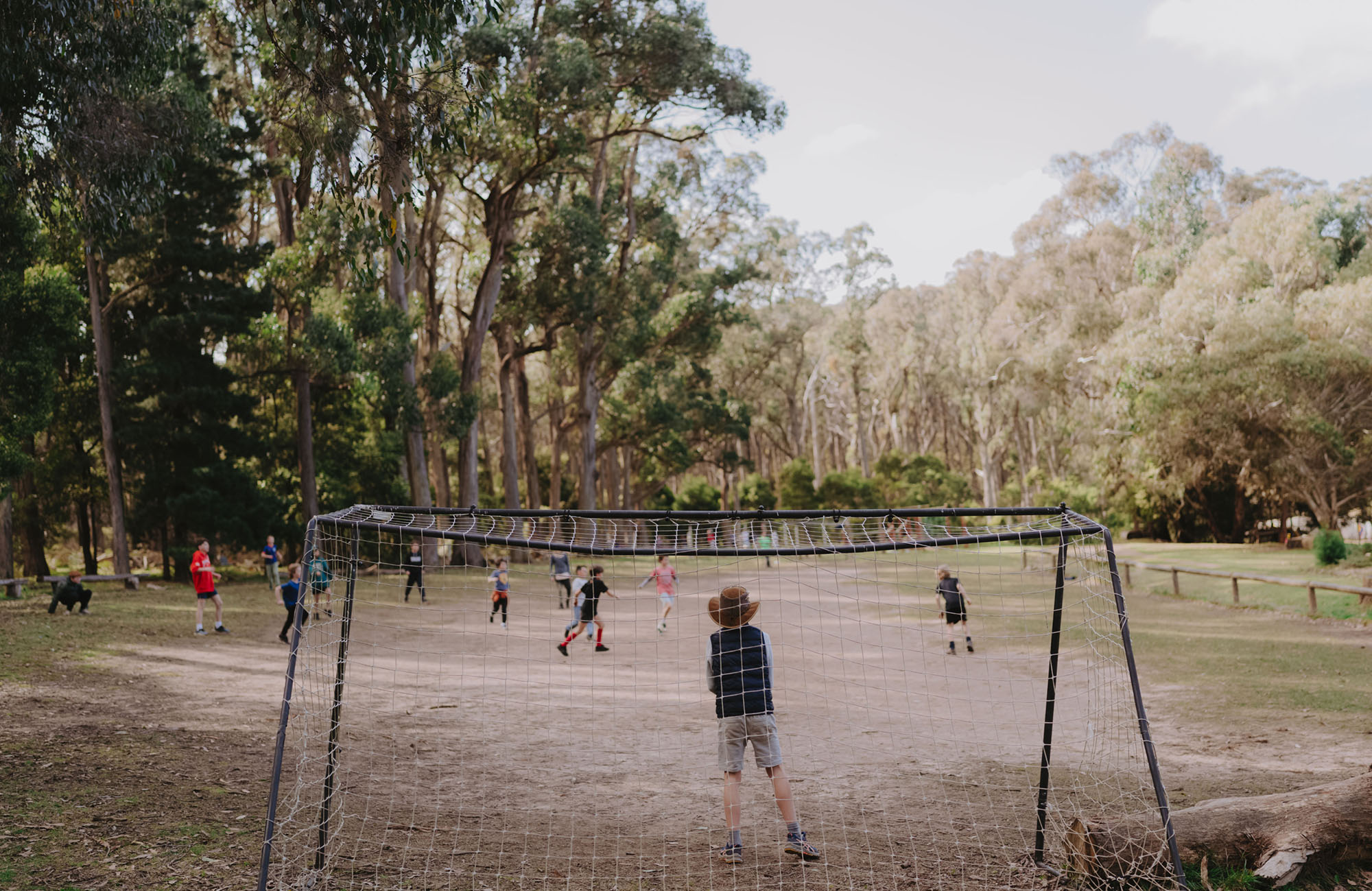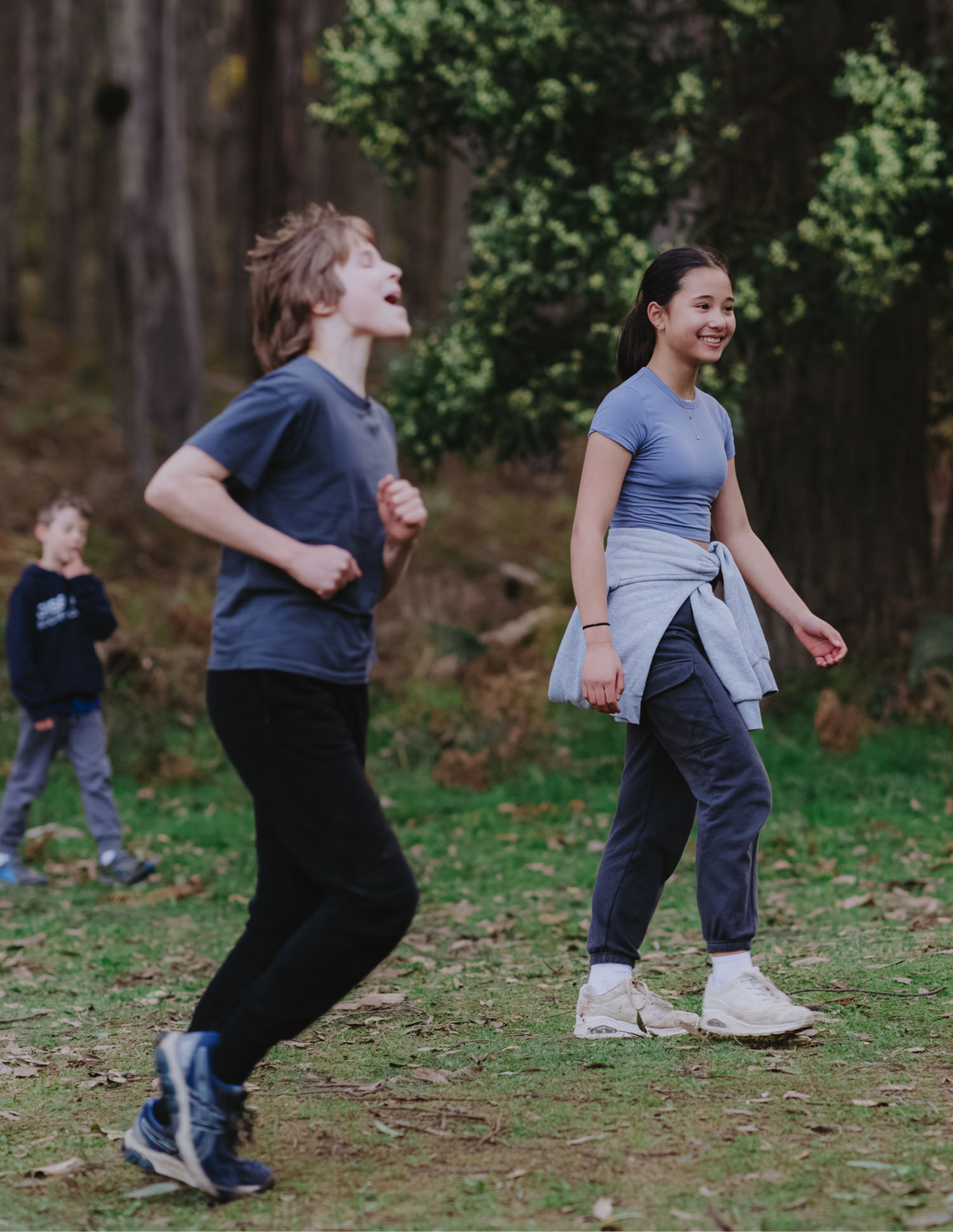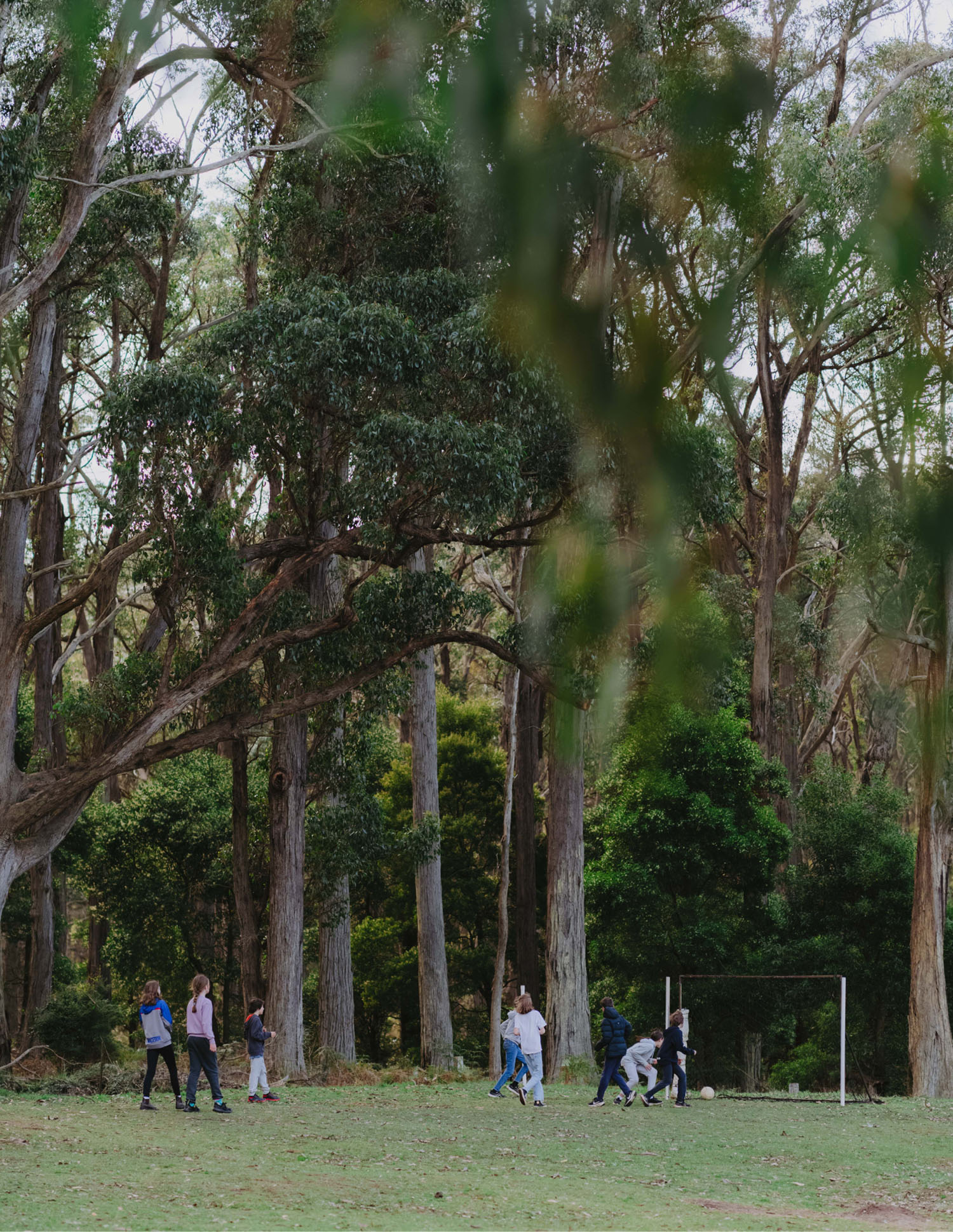Physical health and fitness allow a much greater choice of activities, from scuba diving to climbing Everest, from playing tennis to bushwalking. Physical health and fitness are significant in increasing human lifespan, and in improving the quality of life. Physically fit and healthy people suffer less pain, as they are less prone to debilitating illnesses or injuries.
Physical health and fitness are often accompanied by greater levels of confidence. Clumsiness can be associated with poor levels of academic achievement and social skills.
Physical health and fitness are achieved through teaching nutrition and lifestyle, through teaching greater knowledge and awareness of the body and mind, and through practising games, sport and activities that improve an individual’s level of health, strength, stamina and coordination.
We promote team sports and individual sports, at the same time mindful of the fact that most team sports fall far short of the achievements claimed for them, in terms of building ‘teamwork’. Nearly all team sports, at school level, glorify a few individuals, giving little ‘hands-on’ practice to most, and humiliating a few. Nevertheless team sports can be very enjoyable, and can lead to improved levels of fitness and skills.
Although we do not over-stress competition, at the same time, one of our clear objectives in engaging in individual and team sports is ‘winning’, as losing regularly is not a good experience for anyone.
With about sixty kilometres of trails and tracks, the Candlebark campus is ideally placed for a range of physical activities, including bicycle riding, bushwalking, cross-country running and orienteering. In 2006 Candlebark hosted, for the third time on this property, the Victorian Secondary State Schools Orienteering Championships.
Animal husbandry, including care of horses, cattle, sheep, goats, dogs, geese, ducks, hens and donkeys, is available to students as part of the school programme. Care of the school’s environment, which is also a major part of our programme, includes the clearing of bush trails, the digging out of broome and other noxious weeds, the collection of animal manure and its processing for fertiliser, the cleaning of buildings and their surrounds, and the clearing of drains, all of which contribute to a healthy understanding of life and the environment, and a satisfactory degree of physical health.
Learning to safely negotiate the buildings, the bush, and the tools which they use here, is a platform from which students can learn about living in the wider world. Trips to Melbourne and other areas will also aid in improving students’ confidence and knowledge in negotiating both urban and rural environments.
In the classroom, the students will learn to identify the harms associated with particular situations and behaviours, and how to take action to minimise such harm. They will consider personal and community rights and responsibilities, and the cultural and social diversity of Australia in relation to health and safety, so that they are informed in making decisions about their own and others’ lives.
One of the crucial factors in an individual’s health is his or her capacity to enter into and sustain healthy and positive relationships with others. The school endeavours to provide a living model of this for its students. At the same time, we didactically teach skills to help students form satisfying long-term relationships, which will sustain them in the healthiest possible way.

Cross country
All staff and students run cross country on our vast bush property every week. Candlebark students generally become excellent runners and triumph in regional and state competitions.

Sport
Our weekly classes aim to foster these abilities in students of all ages, creating a space where they can develop patience and strategy. By offering this program, we hope to nurture not just future chess champions, but stronger, more considered learners.

